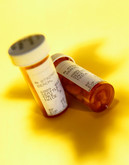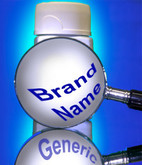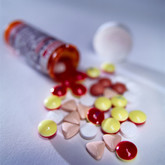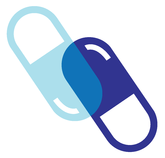Generics
US approves generic of narcolepsy drug Xyrem
The US Food and Drug Administration (FDA) has approved the first generic version of Xyrem (sodium oxybate) – the only drug approved to treat the sudden muscle weakness seen in narcolepsy.
Generics and brand-name drugs compared
What differentiates generics from brand-name medications? That is a question that Andrea Bakker from the Faculty of Medicine of the University of Ottawa tried to answer [1]. In her commentary she explored how differences in licensing affect drug efficacy and how the pharmaceutical landscape in Canada affects patient care.
Novo Nordisk becomes second pharma company to cap price hikes
Danish pharmaceutical company Novo Nordisk has pledged to limit the price rises of their drugs to single digit increases each year, following the commitment made by Allergan in September 2016.
Switching stable kidney transplant patients to generic tacrolimus safe
Researchers from Chile have found that switching stable kidney transplant patients to generic tacrolimus is safe. However, they caution the transplant community to carefully monitor any switch to generics [1].
Patent and regulatory exclusivities driving generic and follow-on market availability
Daniel Nam reviews the differences between intellectual property exclusivity (patents) and regulatory exclusivities (market exclusivity) in the US [1]. A patent is a grant of property right to an inventor for 20 years from the date of application. Market exclusivity is awarded to manufacturers of first-to-market brand products and excludes other manufacturers from marketing the drug product for a certain period of time, depending on the type of product. Nam explains that these tools are used by the US Food and Drug Administration (FDA) to achieve a balance between innovation and equitable access to medications.
Generics regulators outline priorities to 2020
The International Generic Drug Regulatory Programme (IGDRP) announced on 21 December 2016 that it had released its ‘Roadmap to 2020’, which outlines the group’s priorities until 2020. The document outlines those priorities as including five initiatives geared toward harmonizing global regulations for generics.
Endo launches generic version of Zetia
Ireland-based Endo International plc has announced that its operating company Par Pharmaceutical will ship the first generic version of Merck & Co’s blockbuster cholesterol medication Zetia.
Generics applications under review by EMA – December 2016
Generic medicines in Europe can be approved either centrally via the European Medicines Agency (EMA) or nationally via the local regulatory body [1]. Approval by EMA takes place by using a centralized procedure. This leads to approval of the product in all 28 European Union (EU) Member States and in Iceland, Liechtenstein and Norway. At a country level, if approval in a single EU Member State only is required, this can take place using the national procedure. However, as soon as a company seeks approval in two or more Member States, a decentralized procedure or mutual recognition procedure must be used [2].
Natco Pharma and Alvogen launch first US Tamiflu generic
Natco Pharma (Natco) and their marketing partner Alvogen have launched the first generic equivalent of Roche’s flu treatment Tamiflu (oseltamivir phosphate) in the US.
UK competition authority accuses Actavis of overcharging NHS
The UK’s Competition and Markets Authority (CMA) has accused Actavis of breaching competition law by increasing the price of generic hydrocortisone tablets by more than 9,500−12,000% compared to the brand-name product, which was sold by a different company prior to April 2008.











